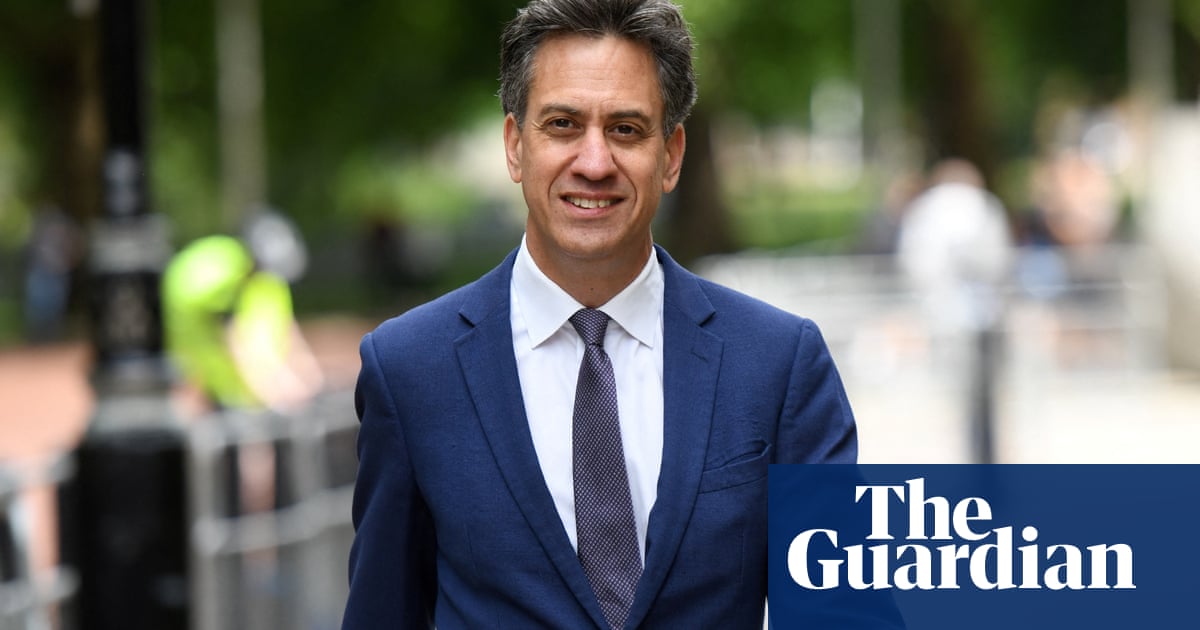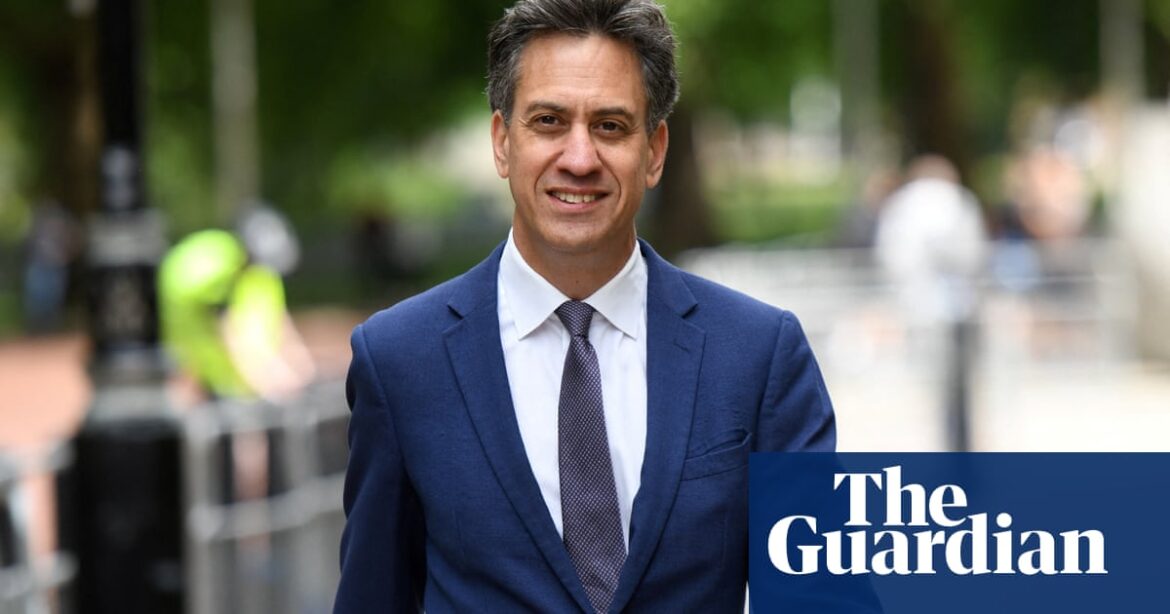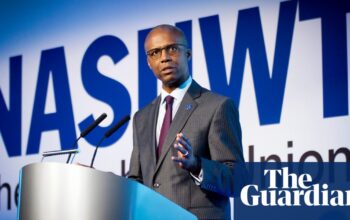
Ed Miliband is to take personal control of the UK’s negotiations at vital international climate talks, in stark contrast to his Tory predecessors.
The energy security and net zero secretary will attend Cop29, this year’s UN climate summit, in Azerbaijan this November to head the UK’s delegation and meet political leaders from around the world.
Senior figures in climate diplomacy welcomed the move and said UK leadership would be vital to what is expected to be a tricky and fraught UN climate summit this year.
Christiana Figueres, the former UN climate chief who presided over the Paris agreement, now founding partner of the Global Optimism thinktank, said: “Ed Miliband has proven experience at Cops and all matters related to those multilateral negotiations. Throughout 14 years he has kept his vigilant eye on the ups and downs, and will not need to start from scratch at all.”
Under the last government, Cop was largely left to junior ministers, despite the importance and far-reaching nature of the negotiations.
Graham Stuart, the climate minister who led for the UK at Cop28, left the summit at an important moment to fly back to the UK for a vote on Rwanda, but returned for the finish.
Figueres said: “The fact that the multilateral negotiations will be led by the secretary of energy himself instead of delegating to a junior minister denotes recognition of the importance of the process as we near the halfway point in this decisive decade. We could not be more pleased with the news.”
Heads of state and government also attend Cops, though usually only for a few days at the start. Last year, Rishi Sunak spent longer flying to and from Cop28 in Dubai than he spent on the ground at the conference, while other world leaders spent several days there. Sunak also snubbed other key climate talks and was said by experts to have damaged the UK’s reputation for climate leadership with his U-turns on climate action.
Keir Starmer also visited Cop28 and spent time with senior leaders including John Kerry, then a US presidential envoy.
Governments are preparing for one of the most difficult UN climate summits in recent years in Baku. At the top of the agenda will be climate finance for developing countries, to help them cut greenhouse gas emissions and cope with the effects of extreme weather.
Developing countries are angry that the rich countries that have done most to cause the climate crisis are shirking their responsibilities to provide assistance to the poorest. They want an agreement that will lead to trillions of dollars, some of it from overseas aid and from international development banks, but much of it also in the form of investment from the private sector, flowing to the global south each year.
The new foreign secretary, David Lammy, attended Cop28 last year and has forged good relationships with developing countries around the world, which is likely to help the UK to bridge differences between the global south and the rich world.
after newsletter promotion
The geopolitical situation is also likely to be fraught: the war in nearby Ukraine will cast a long shadow, as will the conflict in Gaza; the US and China are at loggerheads over trade; France is in political turmoil, and Germany facing economic and political challenges. Above all, the US election the week before could put Donald Trump back in the White House.
Nicholas Stern, an economist and longtime adviser to governments at Cops, and chair of the Grantham Research Institute on climate at the London School of Economics, said: “Miliband’s direct involvement in leading the UK negotiating team will signal to other countries the commitment of the new government at cabinet level, and will allow the UK to act strongly and with authority in driving ambitious action. Miliband has a deep understanding of the complexities of the process based on many years of experience, and he will command respect and confidence both from his colleagues and from other countries.”
Todd Stern, a former US climate envoy under Barack Obama, said: “This makes a ton of sense. [Miliband] is a real diplomat, he understands diplomacy and has a skilled understanding of the issues. The UK can play an important role at this point, in working with Europe, the US and the developed world and the developing world.”
Rachel Kyte, a former chief climate official at the World Bank and now professor of climate policy at the University of Oxford, said: “In a climate crisis, having a senior minister taking the reins makes sense. [Miliband’s] personal engagement sends a signal of UK seriousness, as Starmer has promised. Climate is a head of government issue, as it impacts growth, prosperity and security. The Starmer-Miliband relationship will be key as we navigate difficult times.”
Miliband was the UK’s energy and climate secretary at the Copenhagen climate summit in 2009, where he helped to forge a lasting deal between developed and developing countries, despite the chaos and recriminations in which the conference ended.
Source: theguardian.com



